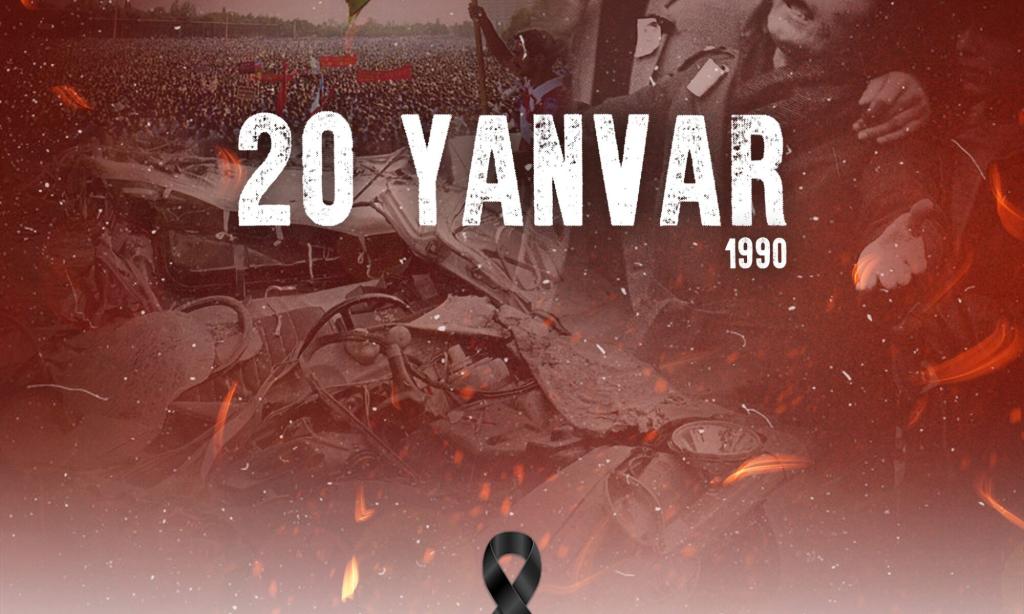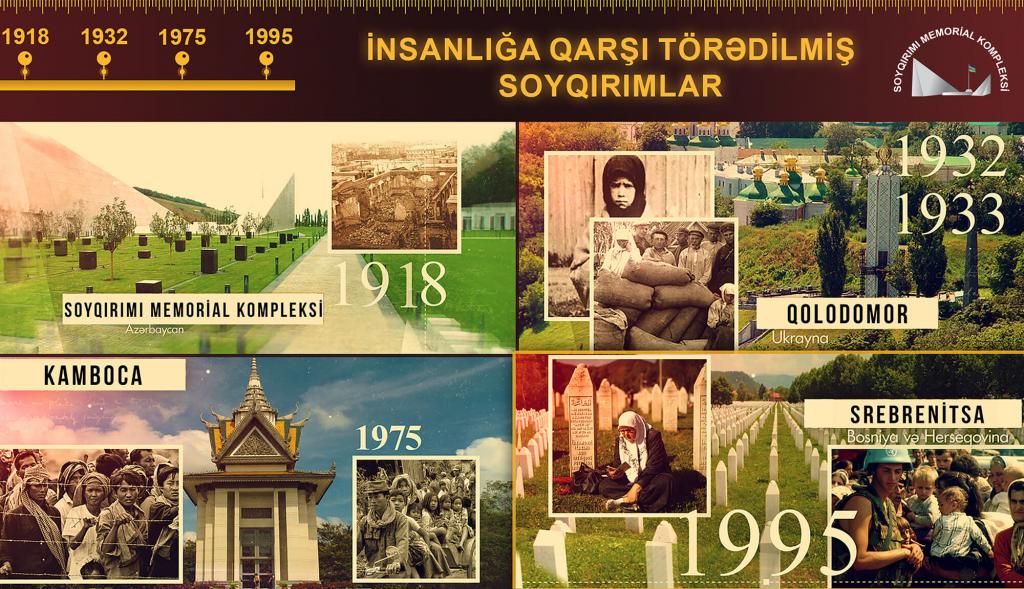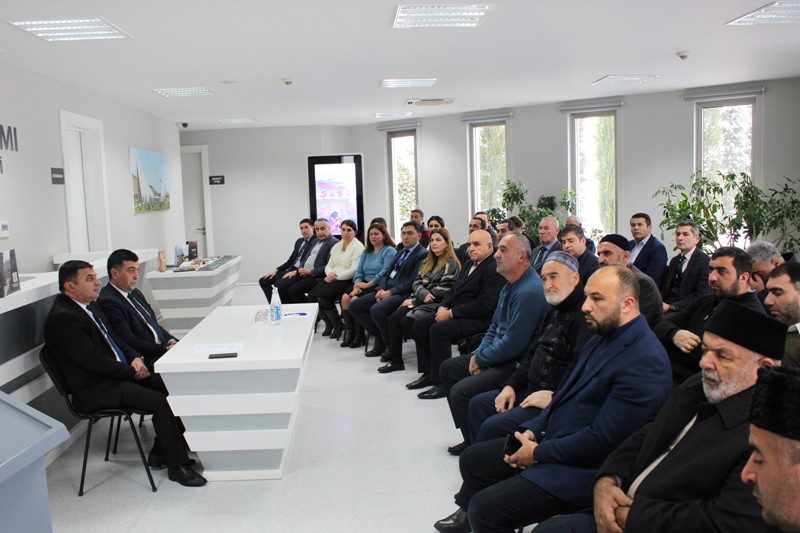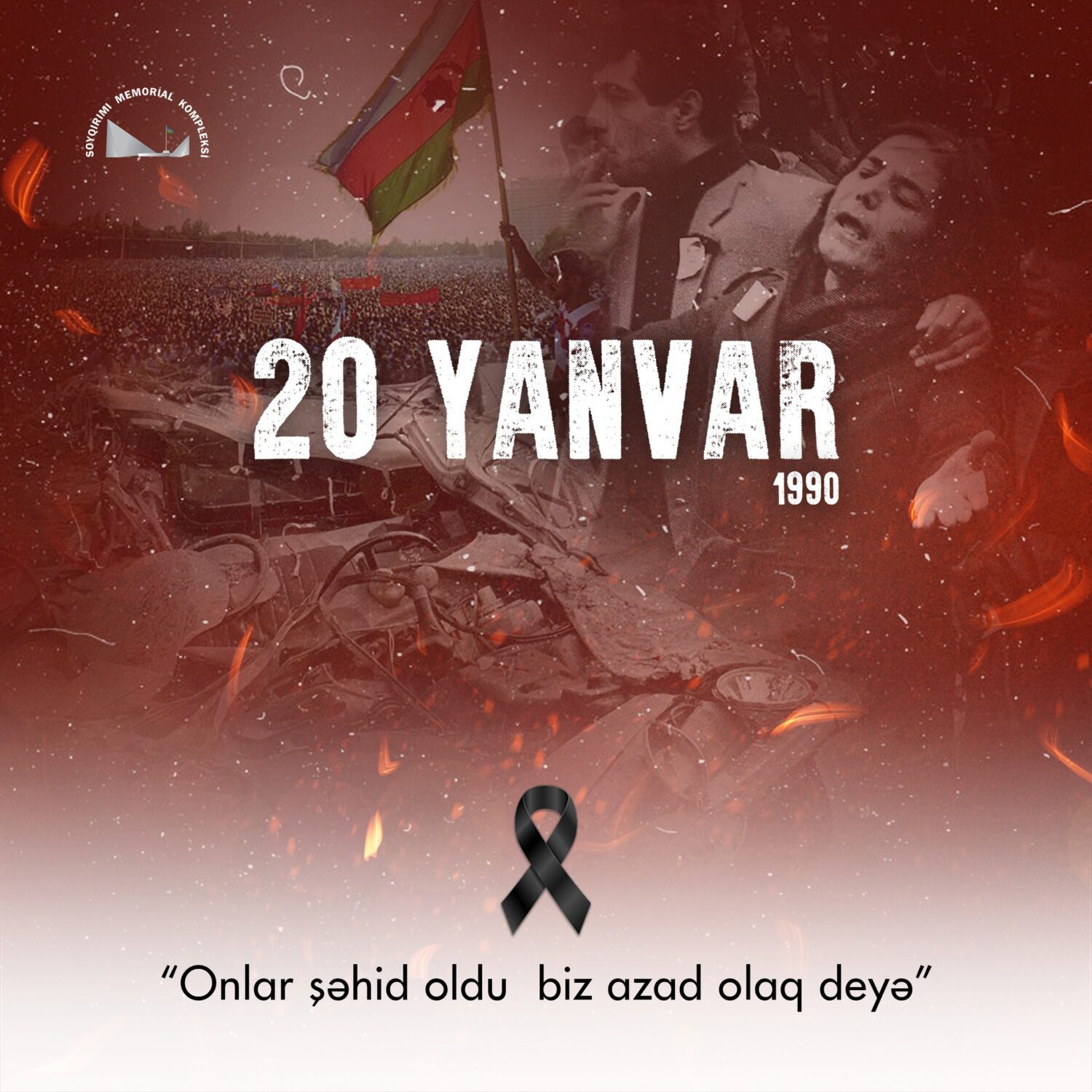
On the occasion of January 20 - International Day of Mourning, an event with the theme "Role of National Leader Heydar Aliyev in conveying the truths of January 20 to the world community" was held in Guba, jointly organized by the "Genocide Memorial Complex" and the Guba District Executive Power.







A minute of silence was observed to honor our martyrs who were heroically martyred in the tragedy of January 20, which is the blood memory of our people who died for the freedom of our nation. At the event there was talked about the crimes of Soviet empire’s military units against the Azerbaijani people and the civilian population, as well as about the great leader Heydar Aliyev’s avtivities during these days – despite the prohibitions of the Soviet regime on January 21, 1990, risking his life Heydar Aliyev came to the permanent representation of Azerbaijan in Moscow and met the organizers of the bloody tragedy and gave speeches in front of world community.
Today in history: On January 11, 1920, the independence of the Azerbaijan Democratic Republic was de facto recognized at the Versailles Peace Conference.


Rakhshanda Bayramova: Azerbaijanis have always lived on modern Armenian territory.

All of our historical and religious monuments in Western Azerbaijan were destroyed by Armenia. There were previously 120 monuments in those areas. However, information about more than 220 historical, cultural, and religious monuments in Western Azerbaijan has been discovered as a result of research conducted in Ottoman archives. These inquiries are ongoing. We must accept responsibility for our past. The country’s leadership’s deliberate policy gives reason to believe that we will return to Western Azerbaijan.
Rakhshanda Bayramova, Director of the Guba Genocide Memorial Complex and Doctor of Philosophy in history, expressed these opinions in an interview with AZERTAC’s regional correspondent.
According to R. Bayramova, Azerbaijan brings the voice of truth to the attention of the international community based on historical facts. As a result, Armenian attempts to rewrite history will be futile.
“West Azerbaijan is Azerbaijan’s historical homeland. When President Ilham Aliyev visited the administrative building of the West Azerbaijan Community on December 24, he stated that many historical documents and historical maps confirm that West Azerbaijan is our historical land. Recently, Azerbaijanis were expelled from their ancestral lands. There are still living witnesses to these events. Our destroyed villages can still be found in Western Azerbaijan. There are Azerbaijani cemeteries in those locations. Throughout history, Azerbaijanis have lived on the territory of modern-day Armenia. Work has now begun to bring all of this to the attention of the international community, according to Rakhshanda Bayramova.
Our compatriots living in Western Azerbaijan were illegally deported several times, according to the historian. It is now time to reestablish their rights. The glorious victory we achieved in the Patriotic War also demonstrated that mighty Azerbaijan can mobilize all of its resources to achieve the objectives set before it. The day will come when our exiles from West Azerbaijan will no longer pine for their homeland. History will be made right.
President Ilham Aliyev, the Supreme Commander-in-Chief, celebrates his birthday today.

Mr. President, we congratulate you on your 60th anniversary. We wish you a long life, good health, prosperity, and success in accomplishing the new goals you’ve set for our country’s well-being.
The head of the State Service participated in the session of UNESCO
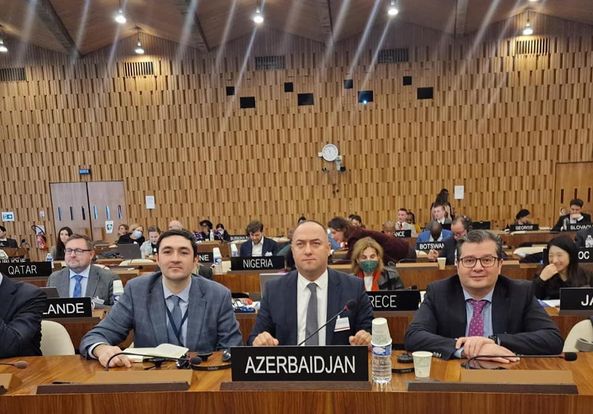
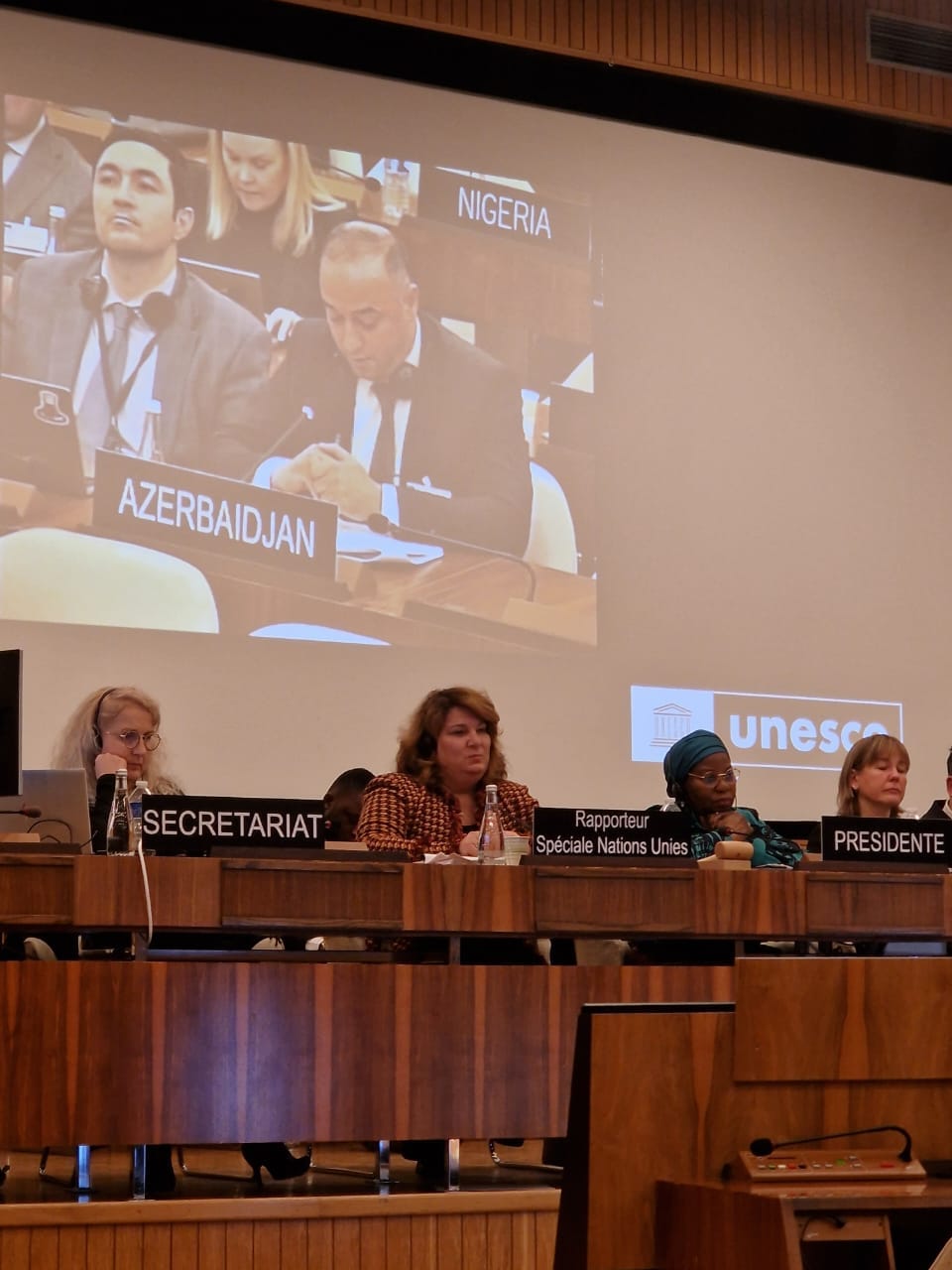
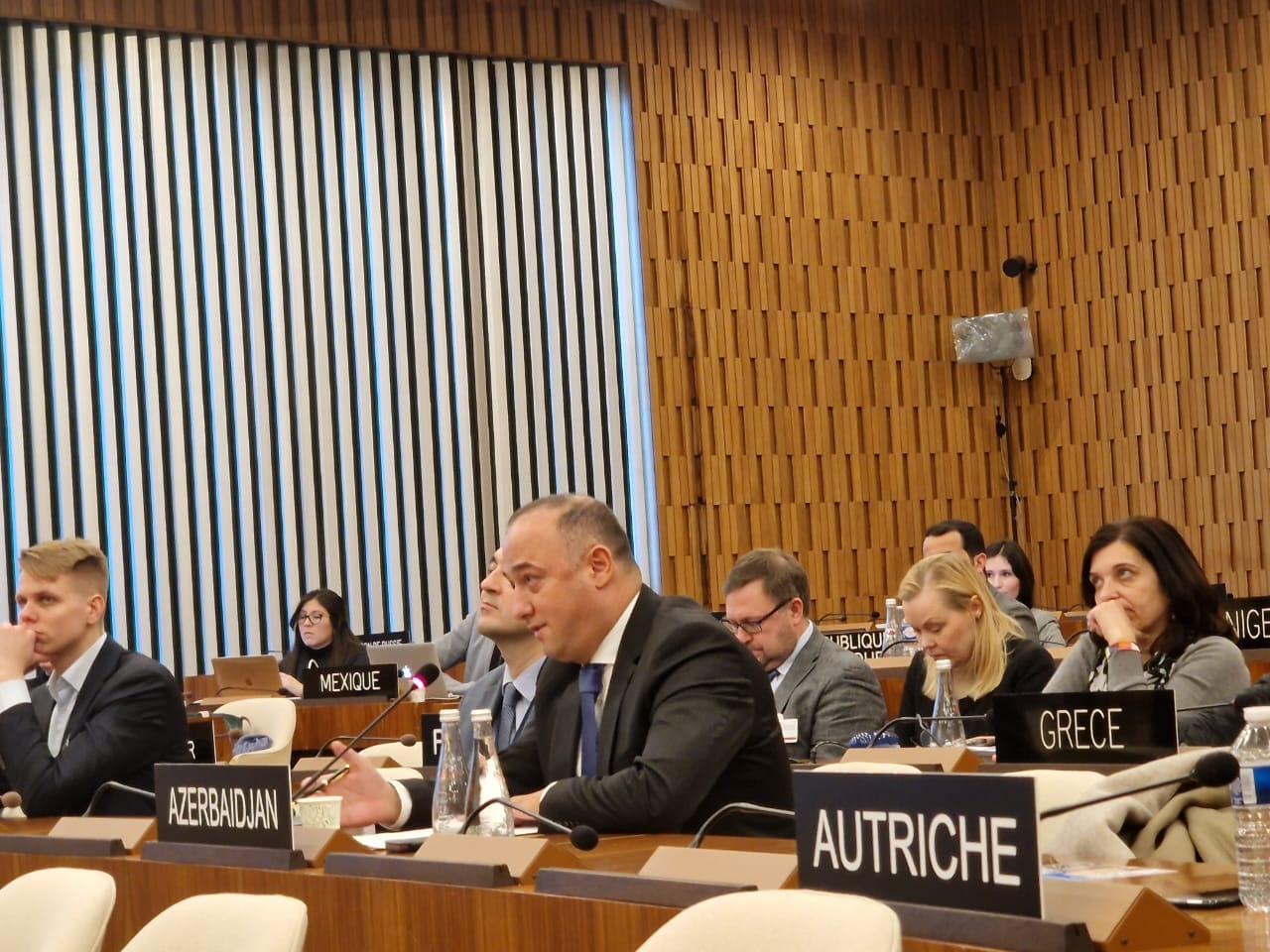
Azad Jafarli, head of the State Service for the Protection, Development, and Restoration of Cultural Heritage under the Ministry of Culture of the Republic of Azerbaijan, led a delegation to Paris to attend the 17th session of the Committee on the Protection of Cultural Property During Armed Conflict. The adoption of the report on the Secretariat’s activities, the adoption of amendments to the monitoring and control mechanisms for the implementation of the Second Protocol of the Hague Convention of 1954, the protection of cultural resources in Ukraine, and other issues are on the agenda for the committee’s next session.
During the discussions, the head of the State Service delivered a speech in which he emphasized that the Government of the Republic of Azerbaijan has conducted monitoring for the purpose of an initial inventory and protection of the historical and cultural monuments destroyed by the occupying state in the territories liberated from occupation, and that measures have been taken to restore them. He emphasized that the main impediment to the ongoing monitoring process is mining in territories liberated from occupation by the Republic of Armenia.
At the same time, the Civil Service official stated that he is willing to share Azerbaijan’s post-conflict measures and experience with other countries regarding the protection of historical and cultural monuments. He emphasized that the Government of the Republic of Azerbaijan is especially concerned about the protection of cultural resources during armed conflicts. The active interest of our country in updating the Committee’s monitoring and control mechanisms, as well as the organization of an international conference on the importance of implementing UNESCO conventions in the field of cultural resource protection in Baku on December 6–9 this year, are examples of the importance Azerbaijan attaches to this topic.
The session was also attended by the Permanent Mission of the Republic of Azerbaijan to UNESCO. At the end of the session, a conclusion was reached based on the decisions made on the agenda items, and information about the next session and consultations to be held over the next year was provided.
Dövlət Xidmətinin rəisi Romada ICCROM-un baş direktoru ilə görüşüb



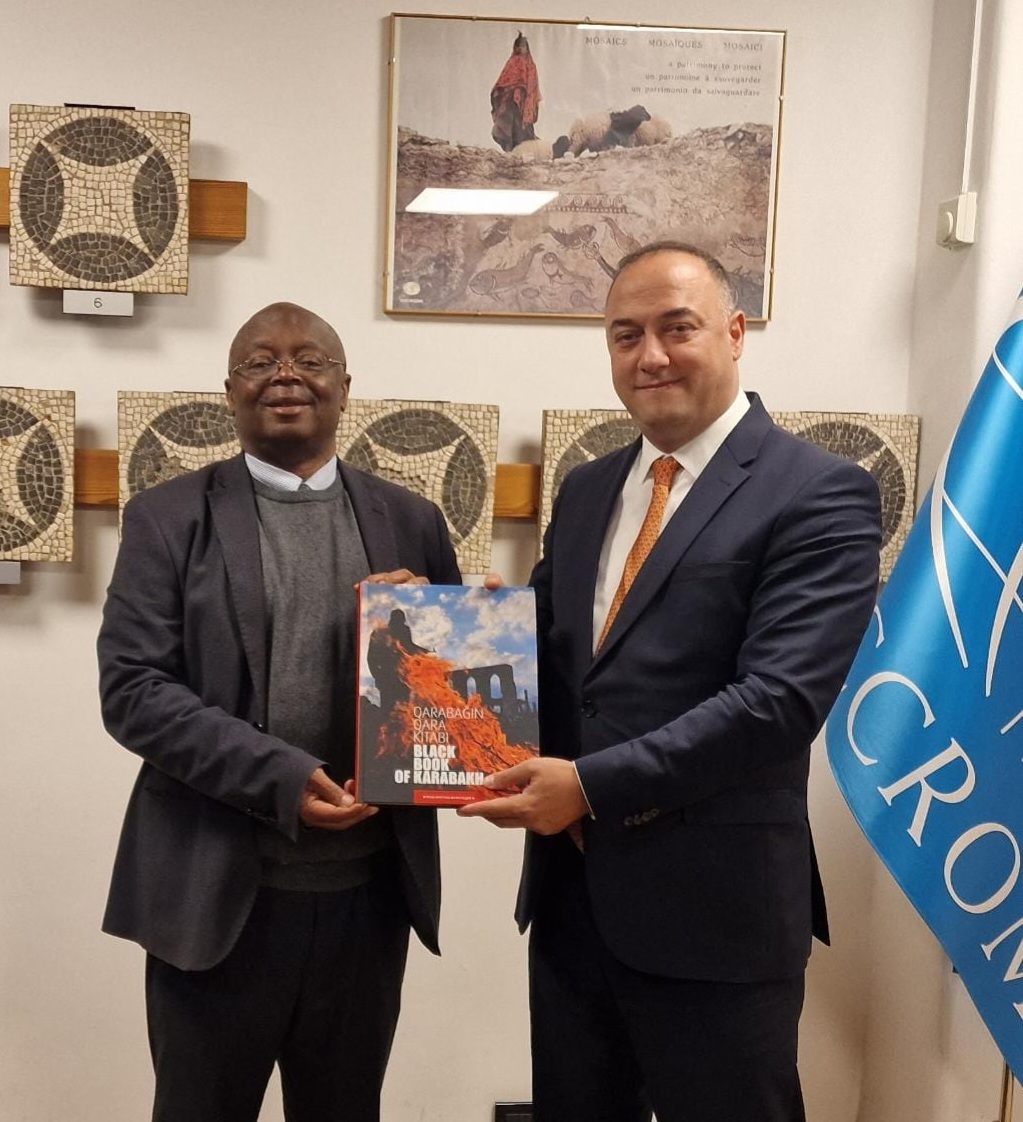

Mədəniyyət Nazirliyi yanında Mədəni İrsin Qorunması, İnkişafı və Bərpası üzrə Dövlət Xidmətinin rəisi Azad Cəfərlinin rəhbərlik etdiyi nümayəndə heyəti İtaliya və Fransaya səfər edib.
Dekabrın 12-də başlayan səfərin məqsədi Romada yerləşən Mədəni Mülkiyyətin Mühafizəsi və Bərpasının Öyrənilməsi üzrə Beynəlxalq Mərkəz (ICCROM) arasında əlaqələrin müxtəlif istiqamətləri üzrə fikir mübadiləsinin aparılması, gələcək əməkdaşlıq perspektivlərinin müzakirə edilməsi, həmçinin UNESCO-nun baş qərargahında (Paris) keçiriləcək Silahlı münaqişə zamanı mədəni sərvətlərin qorunması üzrə Komitənin 17-ci sessiyasında iştirak etməkdir.
Səfər çərçivəsində dekabrın 14-də Azad Cəfərli Roma şəhərində lCCROM-un baş qərargahında təşkilatın baş direktoru Vebber Ndoro ilə görüşüb. Görüşdə Azərbaycan Respublikasının İtaliyadakı Səfirliyinin ikinci katibi Rüstəm Bayramov, Dövlət Xidmətinin baş mütəxəssisi Nəzrin Məmmədova, proqram meneceri Eugene Jo, layihə rəhbəri Rohit Jigyasu, təşkilatın koordinatoru Anna Zeichner iştirak ediblər.
Dövlət Xidmətinin rəisi lCCROM və ölkəmiz arasındakı əməkdaşlığın inkişafı istiqamətində Azərbaycanda həyata keçirilən tədbirlərdən danışıb. İşğaldan azad olunmuş ərazilərdə tarix-mədəniyyət abidələrinin monitorinqi, inventarlaşdırılması, bərpa-quruculuq işləri və infrastruktur layihələrinin icrası haqqında məlumat verib. Post-münaqişə dövründə “Böyük qayıdış” tədbirləri çərçivəsində işğal zamanı dağıdılmış abidələrin qorunması və mühafizəsinə həssaslıqla yanaşıldığını diqqətə çatdırıb.
lCCROM ilə birgə mərkəz Azərbaycan olmaqla abidələrin bərpası və qorunması prosesinin idarə edilməsi, texniki, metodoloji bilik və bacarıqların artırılması üzrə Türkdilli dövlətlərin mütəxəssislərinin iştirakı ilə çoxşaxəli və uzunmüddətli təlimlərin təşkil olunmasının mümkünlüyünü diqqətə çatdırıb.
lCCROM-un baş direktoru Vebber Ndoro isə öz növbəsində ölkəmizdə səfərdə olarkən işğaldan azad olunmuş ərazilərdə, xüsusilə də Şuşa şəhərindəki dağıntıları təəssüflə seyr etdiyini qeyd edib. Baş direktor təlimlərlə bağlı Azərbaycan tərəfinin təkliflərini yüksək dəyərləndirdiyini bildirərək, belə təlimlərin təşkil olunması ilə nümunəvi fəaliyyət və təcrübənin əsasının qoyulacağına inamını ifadə edib. Bununla əlaqədar memorandumun imzalanması və uzunmüddətli əməkdaşlıq proqramının icra edilməsi fikrini dəstəklədiyini vurğulayıb.
Həm işğaldan azad olunmuş ərazilərdə, həm də bütövülükdə ölkə hüdudları daxilində yenidənqurma, inkişaf prosesi çərçivəsində proqramın Azərbaycan tərəfinin şərhlərinə, izahlarına, ehtiyaclarına uyğun olaraq, həmçinin mərkəzi Azərbaycan olmaqla və Türkdilli dövlətlərin iştirakı ilə həyata keçirilməsinin uğurlu nəticələr verəcəyinə ümidvar olduğunu bildirib.
Hər iki tərəfin dəstəklədiyi bu proqramın əlaqələndirilməsi məqsədilə görüşdə əlaqələndiricilər müəyyən edilib, layihələrin hazırlanaraq mübadilə edilməsi və bu addımların yol xəritəsinə uyğun olaraq yerinə yetirilməsi razılığına gəlinib.
Nümayəndə heyətinin səfəri davam edir.
After the Second World War, in 1948, with the adoption by the UN General Assembly of the convention on “the prevention and punishment of the crimes of genocide”, December 9 is celebrated as the International Day of Remembrance for the Victims of Genocide. The purpose of the convention is not only to perpetuate the memory of the victims of the genocide, but also to draw the attention of the world community to the issues of punishing the perpetrators of this grave crime.
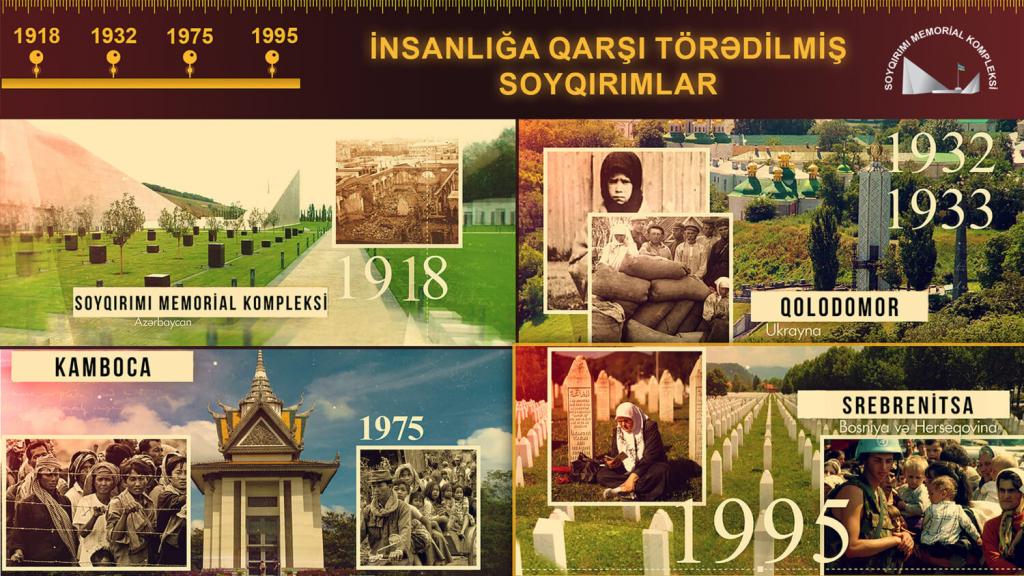
Ambassador Extraordinary and Plenipotentiary of the Republic of Korea to Azerbaijan Lee In-Yong visited the "Genocide Memorial Complex" in Guba. The ambassador was informed about genocides committed by Armenians against Azerbaijanis, and about Armenian vandalism.

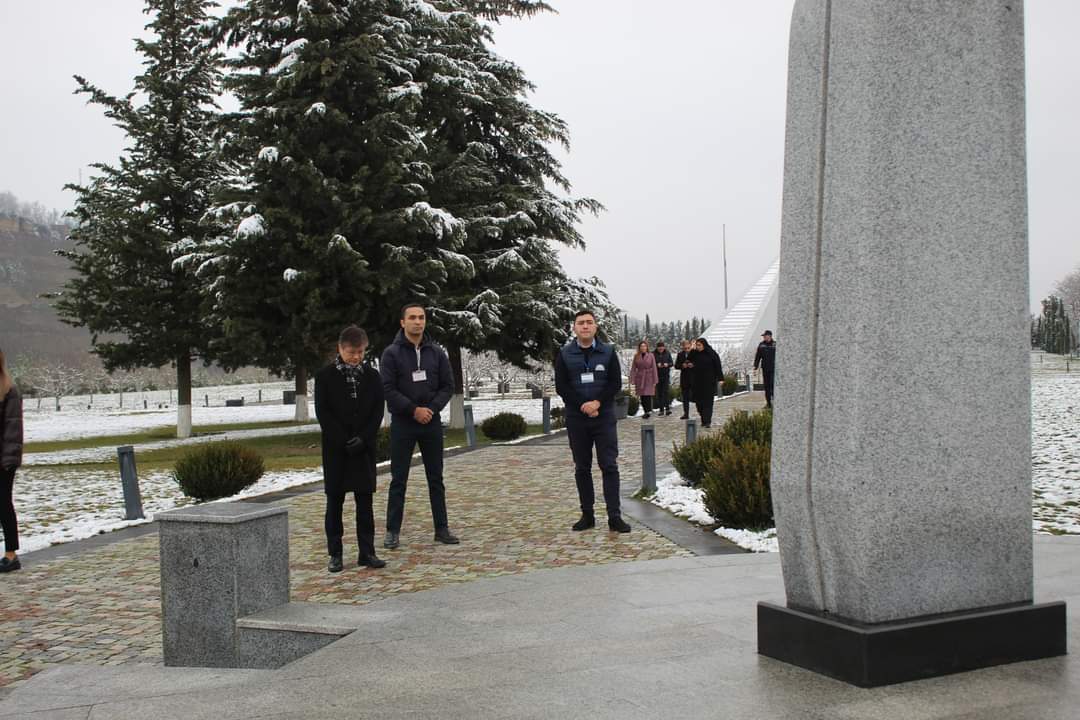

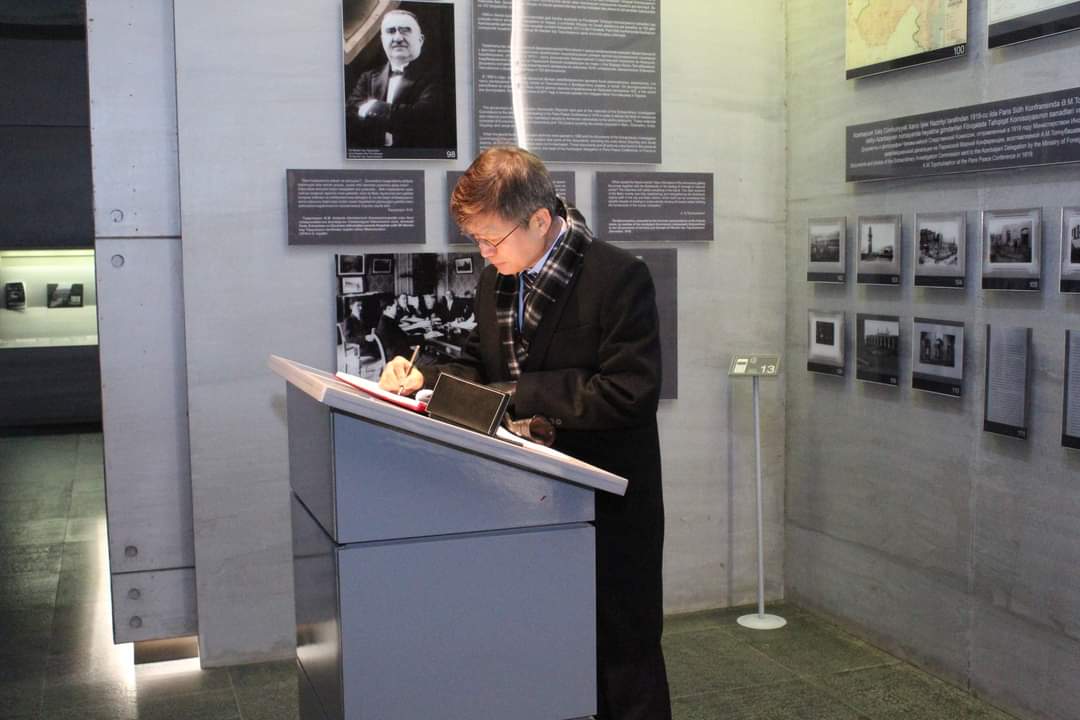
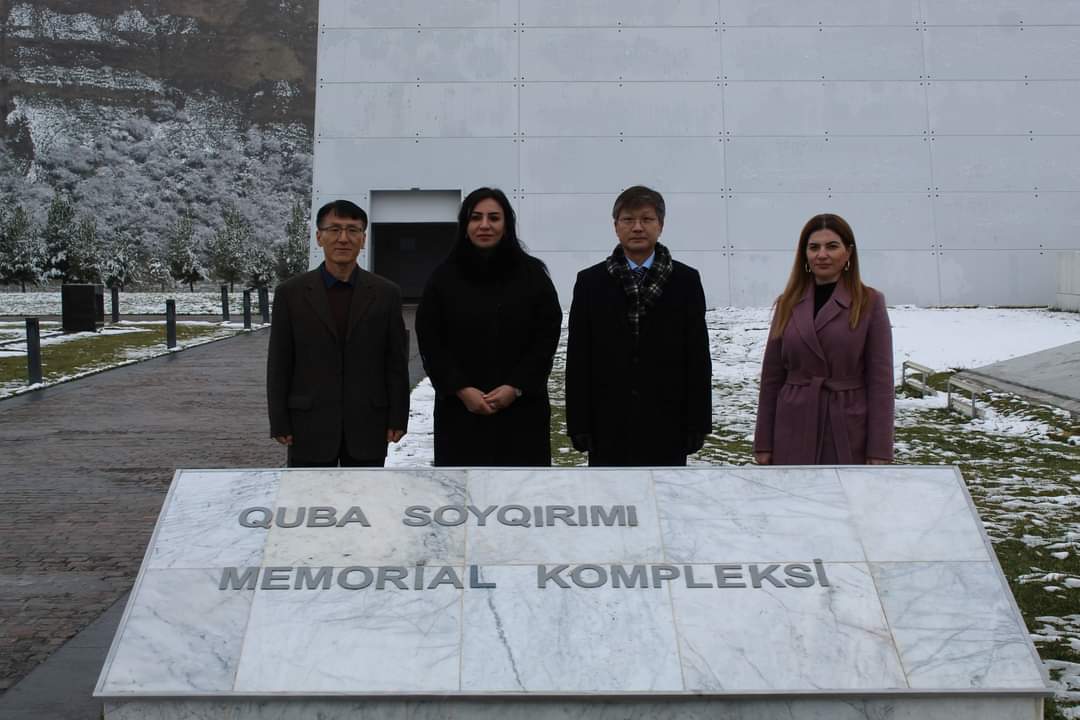
The "Istiqlal" museum
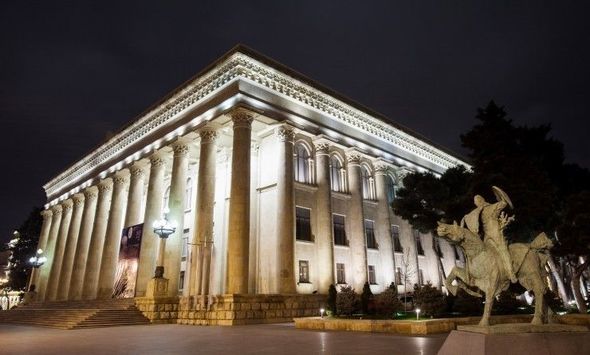
The conference "Traces of Armenian Vandalism in Azerbaijan: International Law and Religion" was co-organized by the "Genocide Memorial Complex," the Guba Region Department of the State Committee for Work with Religious Institutions, the Guba District Executive Authority (RIH), and the Northern Regional Center of the Commissioner for Human Rights.
Lachin district has received the status of an administrative territorial unit since 1930, it consists of 1 city, 1 settlement, and 125 villages.


